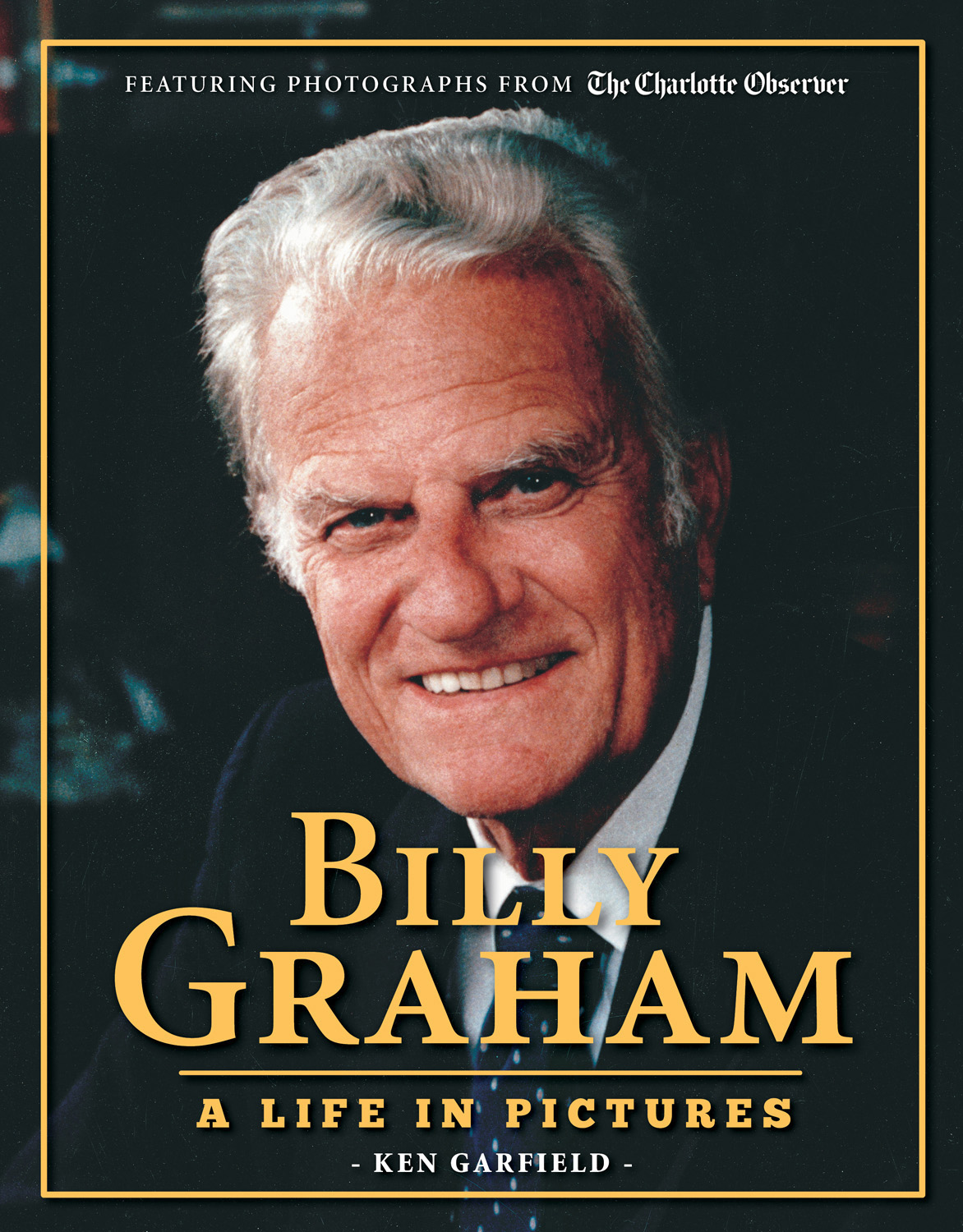Billy Graham turned 95 on Nov. 7, a tender reason to affirm the life of modern Christendom’s most influential figure.
I come to the celebration from a special vantage point after covering Graham for more than a dozen years as religion editor for his hometown newspaper, The Charlotte (N.C.) Observer. I witnessed his impact on millions the world over, felt his warmth one on one and came to admire a somewhat underappreciated dimension of his legacy: In Billy Graham’s world, hope comes from Jesus, not necessarily from Methodism or any other denomination. Those of us facing increasingly empty pews on Sunday mornings ought to pay special attention to that last point.
I poured much of what I know about Graham into “Billy Graham: A Life In Pictures,” a book blending memories and reflections in words and photographs. I signed a copy and sent it to Graham, who wrote me a thank-you note in which he reminisced about coming to Charlotte years ago to visit his mother.
In his tender words, I could see the frail, old man at the end of his life, looking back. That’s the Graham I experienced — warm, down to earth, more deeply personal than the pastor who commanded pulpits for 50-plus years.
Much to learn from Graham
If you and I were talking about all this over a cup of coffee, I’d tell you about the 305,000 people he drew to Charlotte in 1996 for his last hometown crusade. But I’d also tell you about the time he left a message on my answering machine, sharing a long and worried update on his ailing wife, Ruth, a message so long that the machine cut him off. Or, the times I wanted to focus an interview on the world leaders he knew, and he’d turn the conversation back to his childhood and memories of riding the bus to school. The prophetic and the personal, together making a connection.
There’s much that organized religion can learn from Graham.
By setting rules and surrounding himself with honest associates, he remained unsullied by scandal. The Modesto Manifesto was the most famous illustration, established at a meeting in Modesto, Calif., Graham and his colleagues agreeing never to be alone with a woman other than their wives.
Graham resisted the trappings of fame and fortune, living humbly in the small town of Montreat in the North Carolina mountains. That explains the Big Macs he served a colleague and me the day he had us over for lunch. He figured out how to effectively harness all forms of communications to spread the gospel — print, radio, television, movies and, of course, the mass spectacle of his crusades. If he was still active, I think he’d be tweeting.
Practices and principles worth heeding
What church these days couldn’t learn from him, for we all struggle to find the right balance of print and social media. He blended entertainment and religion, understanding that to win over hearts and souls, you first had to get them into the stadium with music and celebrities.
All of these practices and principles are worth heeding, especially at a time when Methodism and other mainline denominations struggle with declining numbers and impact.
As communications director at Myers Park United Methodist Church, I appreciate the need to learn another part of the Graham story: Throughout his ministry, he played down denominationalism by stressing the broader theme of salvation through Jesus. He grew up in an Associate Reformed Presbyterian church and became Southern Baptist. But that didn’t matter to most of the people drawn to his side, nor to him. He was trying to wrest people from the clutches of the culture, not from the competing church down the street. Not once during the dozen years I covered Graham all over the world do I remember him holding up one strain of Christianity over another.
We know this in the Methodist trenches: Most newcomers are coming to us in the hope that we can help them find their way and find meaning along life’s twisting path. The fact that we are Methodist, and that we stand on the foundation of John Wesley, matters not to the searchers. Same goes for those drawn to the church down the street, whatever the denomination.
Billy Graham understood that many of the 215 million people who came to the stadiums to hear him preach during his lifetime were looking for something beyond the emotion and the spectacle. They were looking for the meaning of life. Those of us preaching the same message, we need to understand that, too.
Ken Garfield is director of communications at Myers Park United Methodist Church in Charlotte, N.C. He is the author of “Billy Graham: A Life In Pictures” (Triumph Books, $19.99), available at most bookstores and at www.triumphbooks.com/billygraham. He spent a dozen years covering religion and Billy Graham for The Charlotte (N.C.) Observer. You can reach him at ken@mpumc.org.
Contact United Methodist News Service at 615-742-5470 or newsdesk@umcom.org. To read more United Methodist news, subscribe to the free Daily or Weekly Digests.
Like what you're reading? Support the ministry of UM News! Your support ensures the latest denominational news, dynamic stories and informative articles will continue to connect our global community. Make a tax-deductible donation at ResourceUMC.org/GiveUMCom.



